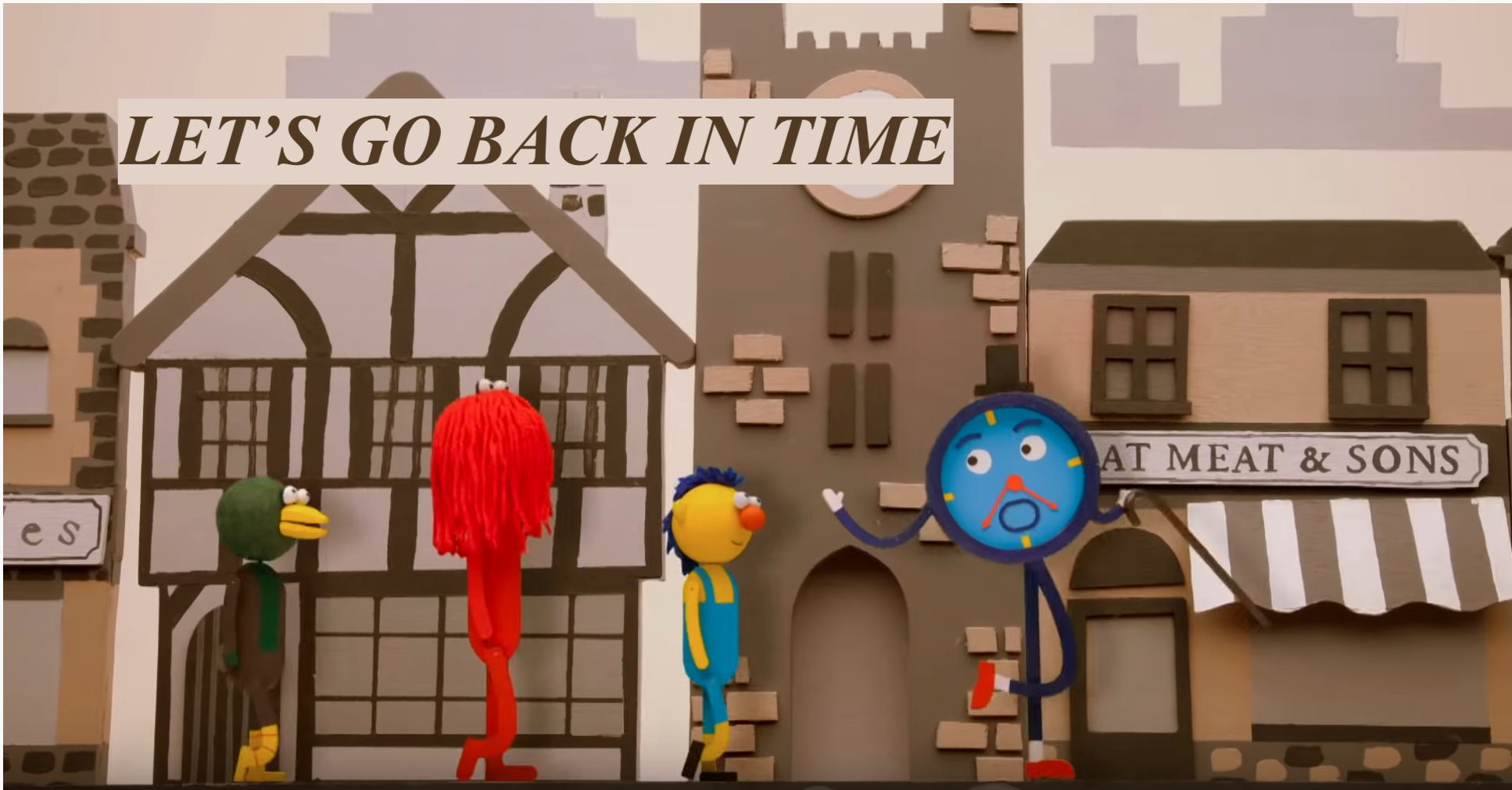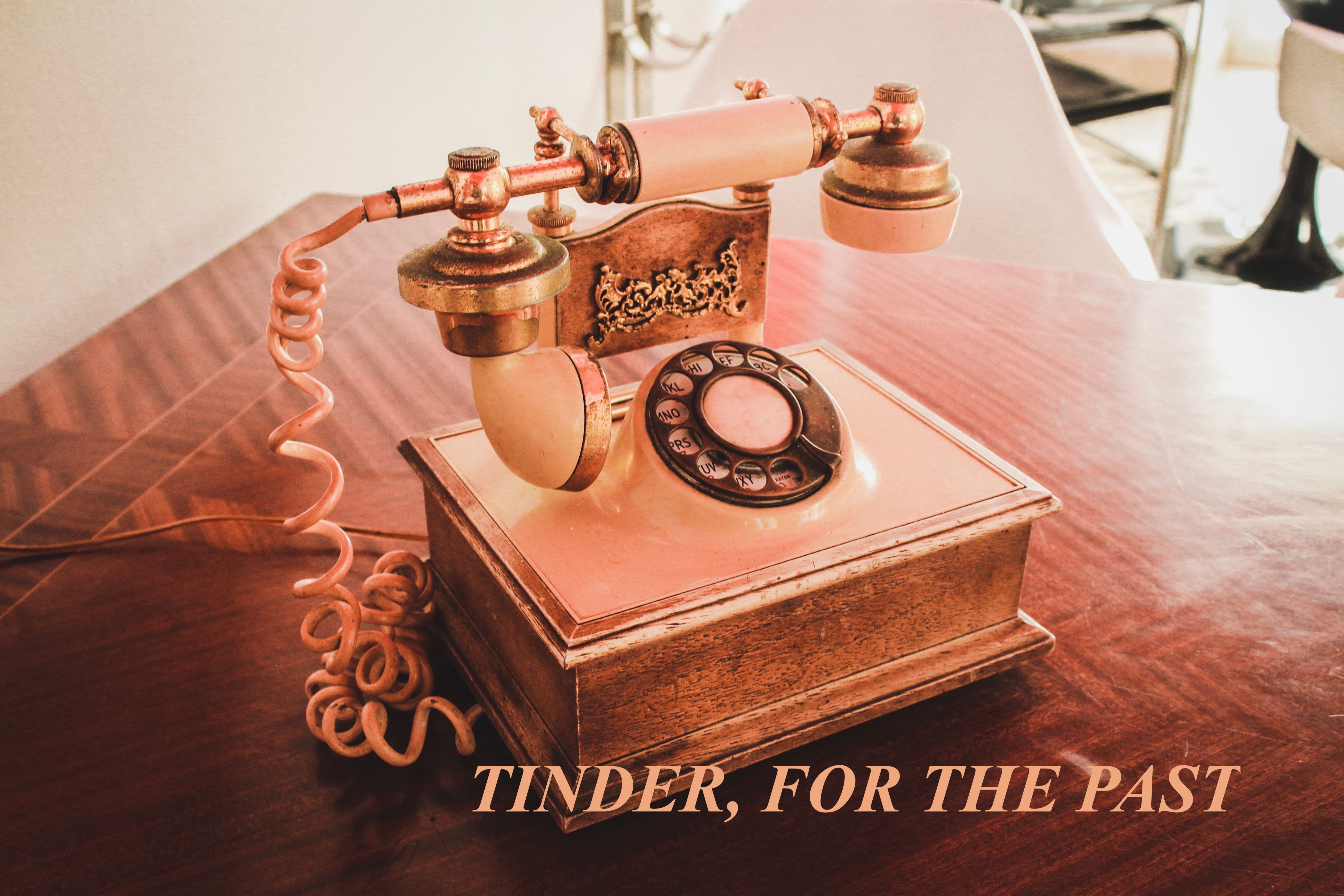Privacy is a concept that is only 150 years old — but have we been maintaining a lie?
 Using a clock to time travel — screenshot from Don’t Hug Me I’m Scared
Using a clock to time travel — screenshot from Don’t Hug Me I’m Scared
Incognito mainly focuses on looking to the future (you know… privacy and technology and what not), but on this rare occasion we’re going to look back and see what we can learn from the past.
The past tells us that for most of history, society as a whole didn’t care much about privacy — that’s because it was completely impractical, so the concept didn’t really exist. Advances in technology were really what changed these attitudes.
Pre-privacy: you can’t pee with the door open when there is no door
In the middle ages, there was no such thing as internal walls. Every dwelling was just one, large room. You ate, slept, and had sex in a single space. The concept of rooms, or more private spaces had not yet entered the consciousness.
Beds were also shared up until the last couple of hundred years. The reasoning was this: why should you buy one bed for each member of the household (expensive, takes up space) when you can just have one bed that’s big enough for everyone (cheap, easy to install).
Even telephone lines used to be shared: sure, every house had a phone, but you were sharing one line with your neighbourhood. That means anyone could pick up the phone and listen in. But nobody cared — telephones were amazing.
 Apparently party lines were great for dating
Apparently party lines were great for dating
Postcards were also amazing — they were a quick and easy way to communicate with people. No envelope, just a short message that anyone can see, regardless of whether they are the official recipient. This is basically WhatsApp without encryption; neighbours and postal workers could obviously just read these, if they wanted.
So, in the before-times, people were just loving life in the open, sharing beds and shouting their wants and desires down the communal phone line. So what changed?
BOOM: it’s the industrial revolution’s turn to be in charge
Here’s a quick overview of the industrial revolution: society found a way to produce things at scale, and no longer had to be so self-sufficient. Suddenly there was more stuff to buy. Where you gonna put all your new stuff? Time to invent rooms.
“Then, there was the emergence of a consumer society. As people began making things instead of growing things for a living, a multiplicity of new products and gadgets for the home appeared. And, as they bought more possessions, homeowners needed more rooms to put them in.”
Dr Lucy Worsley, chief curator of the Historic Royal Palaces.
Once you’ve got more rooms, you sort of have to identify what those rooms are for: relaxing, entertaining, eating, and yes: being alone. Drawing rooms were used for this in a number of ways: a quiet place to write on your own; a smaller more intimate space to withdraw to with a select few guests at a party. The first expressions of privacy were very closely linked to wealth — only certain people could afford private spaces.
The first expressions of privacy were very closely linked to wealth — only certain people could afford private spaces.
As the industrial revolution churned on we made more and more things for ourselves, and a sense of individualism began to arise. Sleeping in the same bed as your servant slowly became not the done thing anymore. Having private phone lines became the norm. And then we invented headphones, and cameras.
Headphones and cameras did not emerge at the same time, but they are both two pieces of technology which were instrumental in forging the concept of privacy that we understand today.
🎧 Headphones were invented in 1910 and didn’t get used at a consumer level until the 50s, when a jazz musician produced the kind that could be used to listen to music (before then it was all for communication purposes). Suddenly, you could go into a record shop and listen to music that no one else could hear. You could use headphones at home, to listen to music alone, without disturbing anyone else.
That had never been done before, so the idea of the solitary, private enjoyment of music became extremely popular. Headphones were a way to be alone — even in a public space.
 Noise cancelling headphones suddenly make the metro an okay thing to be on
Noise cancelling headphones suddenly make the metro an okay thing to be on
📸 The first cameras actually surfaced in 1839 right at the end of the revolution. Like headphones, no one ‘needed’ cameras — but when they appeared, they were amazing. The inventors of cameras and the photograph described the processes as an automatic drawing. People (again, wealthy) paid these professionals to take portraits. Why get a painter to spend hours over several days when a photographer can take your portrait in minutes?
But, as time went on, people realised that a photograph was actually a perfect reproduction of their likeness sitting on paper — and you, or anyone else, could make infinite copies. This brought forth new ideas that were very different to the need for ‘alone time’. This was about keeping personal information private.
In 1890 Samuel D. Warren wrote a pivotal article in Harvard Law Review called “The Right to Privacy”. It was the first article in the US that advocated for a right to privacy. The piece, and indeed the new attitude, was centred around how advancements in technology could easily be harnessed by the government to spy on citizens.
This moment in history built the foundations of what we understand ‘privacy’ to mean today. But back in 1890, no one cared.
Privacy is a post-modern fear
In 1862, president Lincoln’s secretary of war demanded that he have unfettered access to telegraph lines. Lincoln said yes, and this decision to surveil communications helped win the war. Lincoln is now celebrated as a hero. Just over a hundred years later, president Nixon had to resign from office for spying on his political enemies. How was he celebrated?
Over that hundred years, attitudes surrounding privacy changed massively — the 1890 article was completely ahead of it’s time. Technology was driving these changes: with the rise of computers in the 70s, came the rise of the automated recording of information about individuals.
Out of this came laws and regulations like the FTC’s fair information practices. People loved the convenience of technology, but were also scared about what it meant. The new ways in which information flowed was virtual, abstract, and hard to conceptualise — and therefore hard to control.
The new ways in which information flowed was virtual, abstract, and hard to conceptualise — and therefore hard to control.
But think about it: historically, humans have always valued convenience over privacy. One room and one bed for the whole family; postcards with their exposed messages; party lines for phones. People gravitated towards the cheaper and easier solutions.
What does that remind you of? Google services are unbelievably useful and powerful, but they are also totally free. Facebook is a great way to stay in touch with friends and family — again, it’s free. At the same time, we fear these services because we have no idea what they’re doing with our data.
Sending large volumes of postcards and having intimate conversations over a party line are not all that different to how we interact with social media. We think of ourselves and private people but we relish in the act of broadcasting ourselves. We love sharing our lives with each other by going live on Facebook, expressing an opinion on Twitter, or playing a computer game on Youtube.
This idea of ‘privacy’ has only been around for a blip of time within the great expanse of human existence — what is it that’s making us fight to preserve it? If we never really had it anyway, maybe we don’t need it.
What could happen to the future of the internet and the rest of the world if we stopped protecting this concept of privacy that we never really adhered to, and instead started building attitudes based on transparency?
